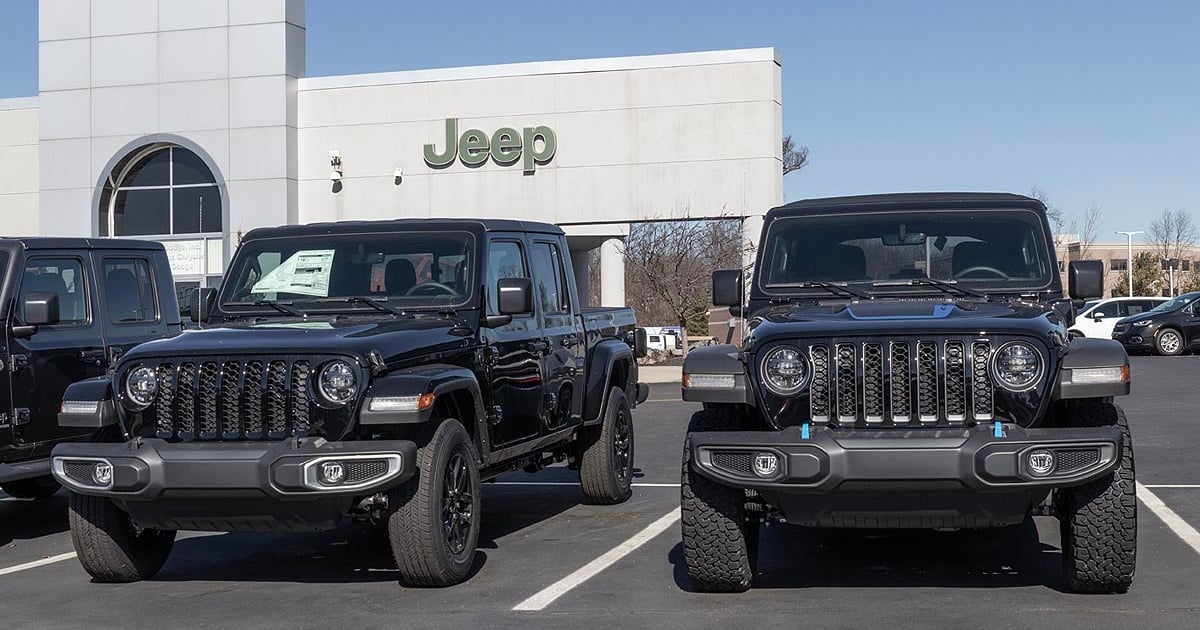
U.S. franchised dealerships polled in April and May saw a favorable market and expected it to continue next quarter. But their optimism has been tempered by economic uncertainty and the issue of interest rates, according to the latest quarterly index survey from Cox Automotive.
The April 24-May 7 Cox Automotive Dealer Sentiment Index survey of 568 franchised dealer representatives and 492 independent dealer personnel revealed franchisees score the current market a 56, up two points from the first quarter, and rated the market three months ahead a 57, up a point.
Scores greater than 50 indicate dealers view conditions as positive or improving.
Cox Automotive Chief Economist Jonathan Smoke told Automotive News on Monday the new-vehicle market is getting better, which despite modestly declining profitability has kept franchised dealerships bullish during a time independent retailers have grown more pessimistic.
“Summertime is always strong for business, and we are already seeing more calls, floor and Internet traffic!” a Northeast Jeep dealer told Cox.
But the one-point increase in future sentiment isn’t statistically significant, according to Smoke, who said uncertainty about economic issues kept dealers from being more optimistic about the next three months.
Asked what factors harmed their business, 61 percent of dealerships cited interest rates, up one point from the first quarter of 2023 and 45 points from the first quarter of 2022, when inventory was dealerships’ No. 1 concern.
“We’re actually seeing franchises become more negative about interest rates,” Smoke said.
The economy was the No. 2 most common hindrance, shared by 49 percent of franchise dealers, compared with 50 percent in the first quarter and 38 percent in the second quarter of 2022. A lack of inventory remained the No. 3 factor, a problem for 42 percent of dealerships during the second quarter — the same as a quarter earlier but down from 67 percent in the second quarters of both 2022 and 2021.
“The market conditions currently do not benefit the consumer,” a Nissan dealer in the South told Cox. “Between interest rates and the lack of credit availability, people just do not have the ability to purchase and afford a vehicle.”
Dealers scored new-vehicle inventory as a strong 60 on the Cox index, down from 63 in the first quarter but above any other time since the COVID-19 pandemic really started to affect the U.S. in the second quarter of 2020. That figure also was above some of the quarters before then as well. Sentiment about new-vehicle inventory mix also improved from a score of 50 in the first quarter of 2023 to 53 in the second quarter.
“We have seen a shortage of heavy-duty pickups the last couple of years,” a Midwest Ford dealer told Cox. “Now we are seeing a steady stream of them incoming.”
But dealers’ feelings about profitability dropped again during the second quarter, also from a score of 60 to 63 and continuing a decline from a peak score of 86 during the third quarter of 2021.
“We are seeing continued erosion … but that number is still much higher than what it was in pre-pandemic times,” Smoke said.
That 60 score remains around 10 points better than dealers reported in any quarter between the start of Cox’s surveys in the second quarter of 2017 and the COVID-19 economic ground zero three years later.
“Dealers are now more pressured to drop prices, OEMs are starting to give more incentives and dealer lots are filling up,” a Midwest Nissan dealer told Cox.